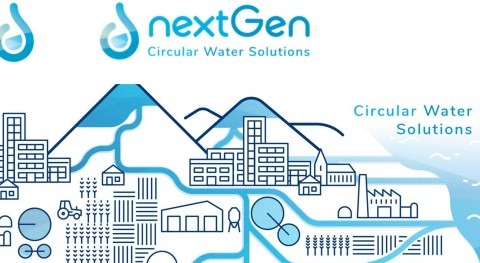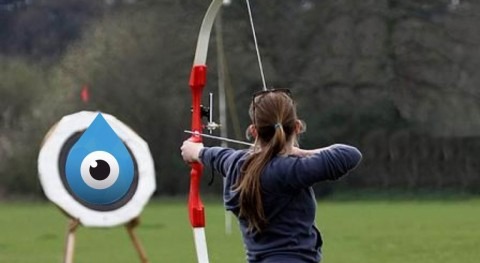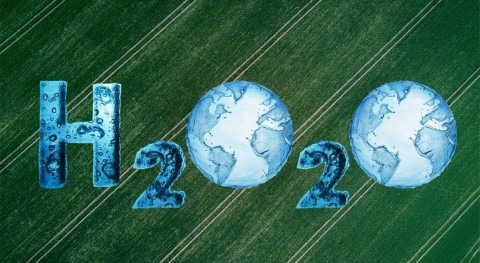On Saturday February 23rd Leo Messi reached 50 hat tricks in his professional career, 44 with FC Barcelona (32 in the Spanish League, 8 in the Champions League, 3 in the Spanish King's Cup and 1 in the Spanish Super Cup) and 6 with Argentina’s team.

Messi reaches 50 hat tricks.
Thank you Messi for so many days of football to remember.
Thanks FC Barcelona for detecting, capturing, retaining and enhancing the talent of the best player in football history.
I started writing this post on a Saturday morning, but after the game on Saturday afternoon, I thought I should start with these words.
FC Barcelona
FC Barcelona (FCB) is known by practically the 500 million people in the European Union. Everyone knows the sports club, but far fewer people know what they do beyond sports. I will comment on some experiences I have had with FC Barcelona that will help me explain why "FC Barcelona is more than a Club".
FC Barcelona and women
FC Barcelona has a working group known as Edelmira Calvetó, named after the first female member of FCB. This group promotes the presence of women in the communication channels of the Club, promotes the visibility of female athletes in the entity and the participation of female members in co-creation workshops, and organizes conferences, round tables and debates on the role of women in society and in the Club.
For the past 3 editions I have been helping the Neighbourhood Association of Balafia organize the #BalafiaXdonaiesport day, in support of women in sports. A few months ago we told the FCB about the tenth edition of this day, which was held on January 25th at the Llotja de Lleida.
I want to thank here FC Barcelona for their important support for this day. Thank you Mrs. Maria Teixidor, manager of FCB, and Mr. Markel Zubizarreta, responsible for Women's Football. And thanks to the two people who accompanied us throughout the day, Mr. Josep Vives, FCB spokesperson, and Mr. Xavier Llorens, responsible for women and sport at ‘La Masia’ (FCB’s farm team) and former coach of the women's football team, who made a presentation on the transition from amateur to professional sports.
In this flickr album you can see some more pictures of the day.

Fig. 2. Mr. Josep Vives (FC Barcelona) awarding the prize to the most influential tweeter.

Fig. 3. A memento from the city of Lleida is presented to Mr. Xavier Llorens (FC Barcelona)
The FC Barcelona and Technology
In mid-November the FCB organizes a Congress on Technology in the world of sports, where it gathers leading worldwide entities and people in this field. Currently, the Barça (FCB) gives great importance to knowledge and innovation issues in the world of sports, and has created the Barça Innovation Hub.
There have been 4 #FCBSportsTech conferences, and I was able to attend the last 3. I have been able to check the level of the speakers, of the organization, and the importance of networking on innovation issues.
On February 25-28 the Mobile World Congress (MWC) was held in Barcelona. In this last edition Xavier Casals presented the MWC.

Fig. 4. At the 2nd Congress on technology in the world of sports, with Raúl Peláez (Head of Technology at FCB).
The Barça Foundation
The Mission of the Barça Foundation is to support vulnerable children through sports and education in values, to help build a more inclusive and egalitarian society.
In the last edition of #FCBSportsTech, Mariona Miret, from the Barça Foundation, explained the project they have so that children who have long-term illnesses can experience a virtual visit to the Camp Nou, the home stadium of FC Barcelona.

Fig. 5. Mrs. Mariona Miret explaining why the Barça is more than a club.
Water and Food
I started to write this post on Saturday because on Friday, February 22nd, I attended the Irrigation and Future Conference, organized by the General Irrigation Association of Urgell Canals.
In this Conference, the FC Barcelona also had a key role, in a presentation by Joan Girona (Institute of Agri-food Research and Technology of Catalonia, IRTA): Water and Efficiency in Food production and Land Sustainability.

Fig. 6. Mr. Joan Girona (IRTA) explaining that with the water that can be stored in the Camp Nou, only 247 families could be fed during one year.

Fig. 6. Mr. Joan Girona (IRTA) explaining that with the water that can be stored in the Camp Nou, only 247 families could be fed during one year.

Fig. 7. Mr. Joan Girona (IRTA) explaining the concept of water footprint for food production.
Some final ideas from Joan Girona:
- Without water there is no food.
- The production of food depends on the water available for plants.
- Overpopulation and climate change will pose difficulties: we have little water and little land.
- You can produce more food with less water through efficient water use.
- Each type of food has a water footprint. In the case of apples, this can vary according to the technology used and the training system, between 70 and 30 l /apple.
Some personal comments:
- People usually estimate surface size much better than volume size. The Camp Nou is a stadium known to everyone, and Joan estimated it can hold a volume of water of 1,262,170 m3, equivalent to 1.26 hm3.
- The Rialb reservoir on the Segre River is the largest reservoir in Catalonia, with a capacity of 402.8 hm3; it can store 319 times as much water as the Camp Nou. Here we must add the dynamic reservoir regulation throughout the year.
- With a water footprint of 70 l / apple, and the water in the Camp Nou, 18 million apples could be produced, that is, 2.4 apples per inhabitant of Catalonia.
- Taking into account that throughout the day we eat more than just 2 apples, and that we eat every day of the year, the irrigation water needs to produce food for a whole year amount to an important volume of water.
- Plants transpire returning to the water cycle 99.5% of the water absorbed by the roots.
- The main food production countries in Europe are in Southern Europe, because of the milder temperatures. Irregular rainfall must be complemented with irrigation water.
Mr. Ricard Ramón, from the European Commission’s Directorate-General for Agriculture, also participated in the Mollerussa Conference. He explained the objectives of the common agricultural policy (CAP):
- Support for agricultural income and farm resilience.
- Improvement of competitiveness and orientation to market needs.
- Improvement of the position of farmers along the food chain.
- Mitigation and adaptation to climate change.
- Sustainable development and management of natural resources.
- Protection of biodiversity and landscape.
- Recruitment of young farmers.
- Occupation and growth in rural areas.
- Food and Health.

Fig. 8. Mr. Ricard Ramon (DG Agriculture of the EC) explaining the objectives of the new CAP.
According to Mr. Ricard Ramon, even if Agriculture is only 2% of the EU’s GDP, the EU considers it strategic because it manages 90% of the territory, but above all, because it must produce quality food every day for the 500 million people that make up the EU, as well as other areas where food is exported.





